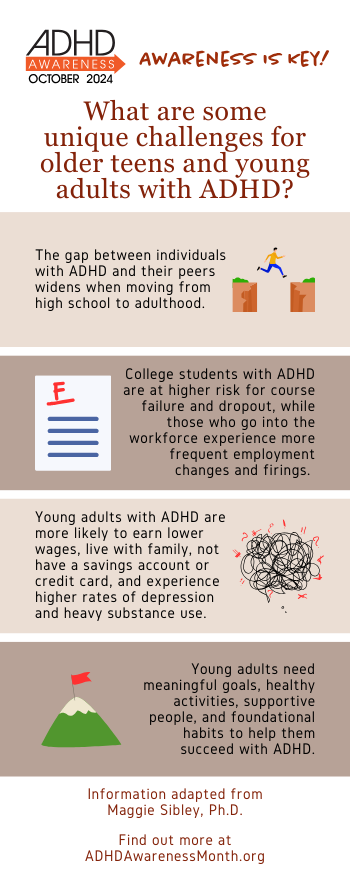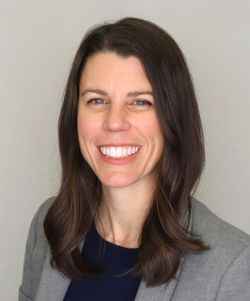The transition to young adulthood is one of the most vulnerable periods of life for a person with ADHD. Top challenges include finding an engaging career path, taking care of one’s mental and emotional health, building meaningful relationships, and reaching financial stability.

Many people think that ADHD becomes less severe as people age; yet, when looking at level of impairment (i.e., how much ADHD impacts one’s daily life), that the gap between individuals with ADHD and their peers actually widens when moving from high school to adulthood.
In fact, 19 year olds with ADHD are up to 11 times more likely than peers to be both unemployed and not enrolled in school. College students with ADHD are at higher risk for course failure and dropout, while those who go into the workforce experience more frequent employment changes and firings. Young adults with ADHD tend to earn lower wages (by one estimate over 40% lower), are more likely to live with family, are less likely to have a savings account or credit card, and experience higher rates than peers of depression and heavy substance use.
Because these difficulties may be on the horizon for transition aged youth with ADHD, efforts are needed both before and during the transition to young adulthood to help individuals sidestep these risks. Young people with ADHD need skills that help them navigate life with ADHD, they need experiences that help them self-explore their interests and unique strengths, and they may need to plan early for life after high school. Their parents need support too, especially with learning to taper supports gradually and navigate the tenuous balance between supporting independence and staying involved.
Young people with ADHD may want to experiment with stopping their medication—especially if they have taken it for many years. They also may be approached by peers without ADHD who are interested in buying their pills. It is critical for transition aged youth who take medication to discuss these concerns with their doctors. Forming a relationship with a therapist in high school who can continue to work with the individual as a young adult can also help smooth the transition. Ultimately, young adults with ADHD who feel that they have meaningful goals and healthy activities in their lives, supportive people around them, and foundational habits to help them succeed will find their way during these challenging years.
About the Author

Maggie Sibley, Ph.D. is a Professor of Psychiatry and Behavioral Sciences at the University of Washington School of Medicine and a clinical psychologist at Seattle Children’s Hospital. She is the author of Parent-Teen Therapy for ADHD: Building Skills and Motivation.
